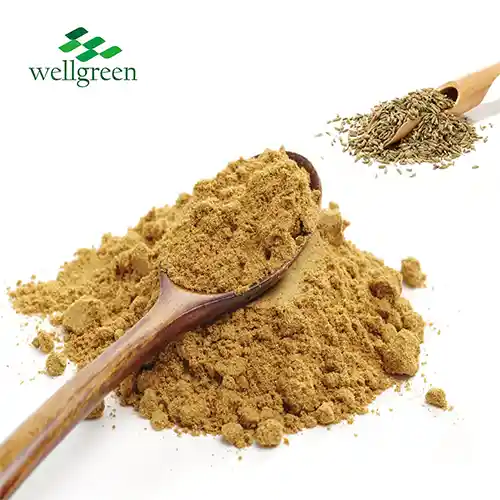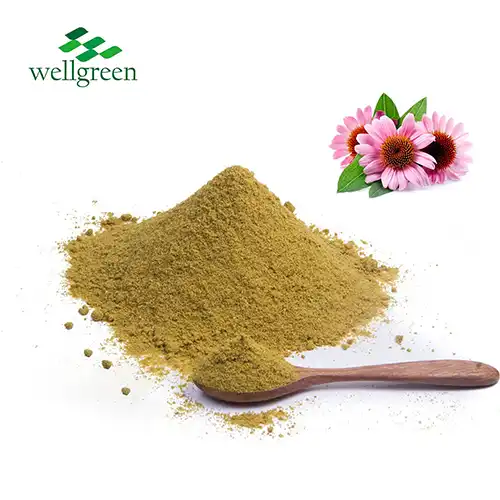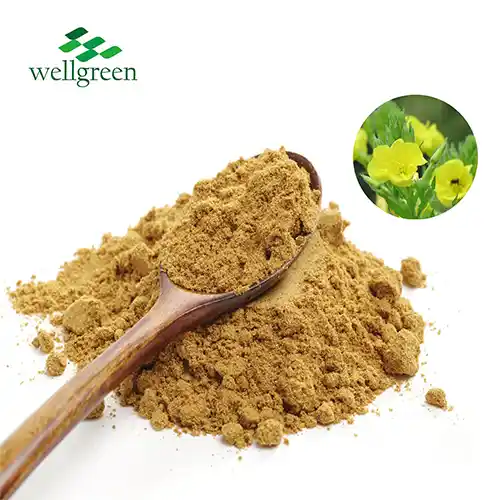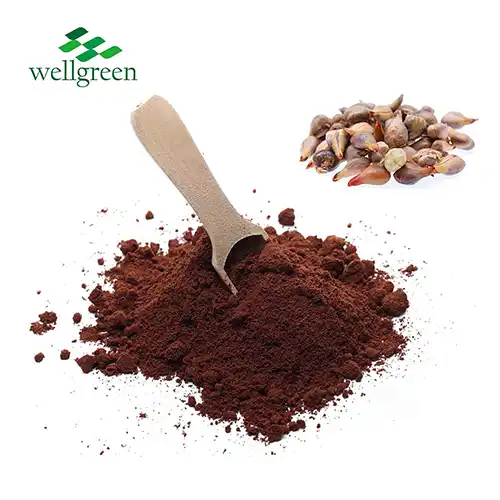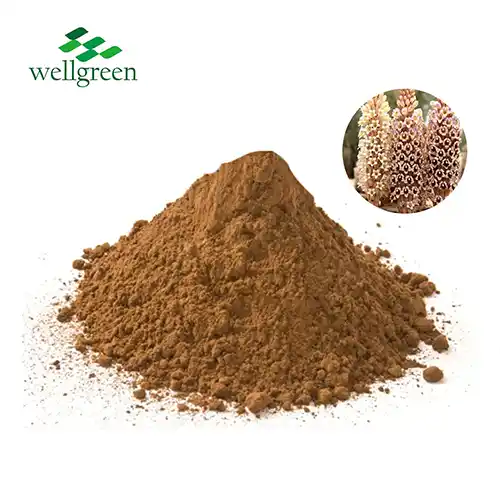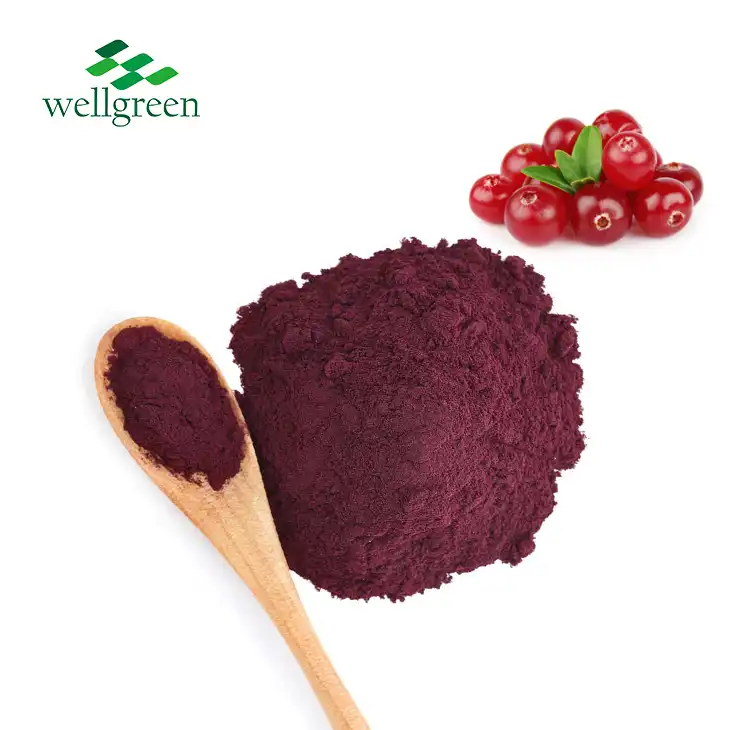What are the benefits of Ligusticum?
2023-12-11 14:23:48
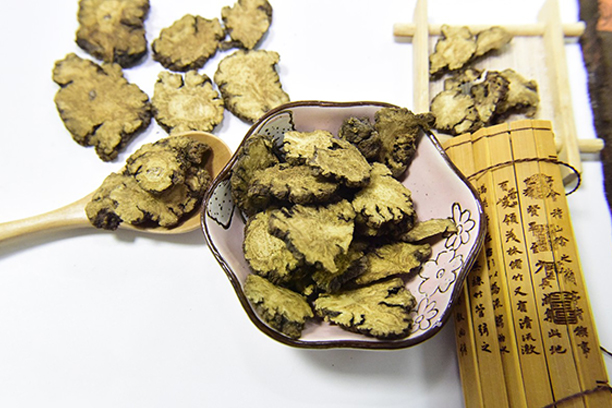 Rhizoma Chuanxiong Extract is a genus of flowering plants in the Apiaceae family that has a long history of use in traditional Chinese medicine. Often referred to as “Chuan Xiong” in Chinese, ligusticum root has been used for over 2,000 years to treat a variety of conditions (1).
Rhizoma Chuanxiong Extract is a genus of flowering plants in the Apiaceae family that has a long history of use in traditional Chinese medicine. Often referred to as “Chuan Xiong” in Chinese, ligusticum root has been used for over 2,000 years to treat a variety of conditions (1).
Over 80 species of ligusticum exist, but the most common medicinal species is Ligusticum chuanxiong. The root is typically harvested from 4-year-old plants grown in the Sichuan province, dried, and prepared as powders, decoctions and alcohol-based tinctures (2).
Modern research has now verified many of the traditional therapeutic properties attributed to ligusticum root extracts. Here’s an overview of the science-backed health benefits ligusticum can provide:
1. Improves Cardiovascular Health
In traditional Chinese medicine, ligusticum has been prescribed to promote blood flow and treat circulatory disorders. A wealth of research now confirms ligusticum delivers vasodilating, cardioprotective and blood pressure-lowering effects (3).
Specific cardiovascular benefits demonstrated in human and animal studies include:
Vasodilation - Relaxes arteries and lowers vascular resistance to improve circulation (4).
Anti-hypertensive - Reduced blood pressure in hypertensive animal models (5).
Anti-atherosclerotic - Inhibited LDL cholesterol oxidation and vascular inflammation linked to plaque buildup (6).
Protects the heart - Prevents ischemia/reperfusion injury and cell death after heart attacks (7).
The main active constituents behind the heart health benefits are believed to be ligustilide and other phthalide derivatives found abundantly in ligusticum root (3).
Overall, Rhizoma Chuanxiong Extract appears highly effective for supporting healthy circulation and heart function.
2. Analgesic and Anti-Inflammatory Properties
 In Chinese medicine, ligusticum root treats pain and inflammatory conditions like headaches, joint pain, eczema
In Chinese medicine, ligusticum root treats pain and inflammatory conditions like headaches, joint pain, eczema
and bronchitis. Scientific evidence confirms potent pain-relieving and anti-inflammatory effects useful against
various inflammatory disorders (8).
Human, animal and cell culture studies demonstrate ligusticum extracts significantly:
1. Reduce pro-inflammatory cytokine and mediator production (9).
2. Suppress enzymes COX-2, iNOS and phospholipase A2 linked to inflammation (10).
3. Inhibit NF-kB and MAPK signaling pathways that control inflammation (11).
4. Decrease edema, vascular permeability and inflammatory cell infiltration (12).
Thanks to these mechanisms, ligusticum root works as an analgesic and anti-inflammatory agent against
conditions like arthritis, vasculitis, atherosclerosis and sepsis (8, 13). The pain-soothing abilities can also benefit headaches, surgery recovery and trauma healing.
3. Calms Allergies and Asthma
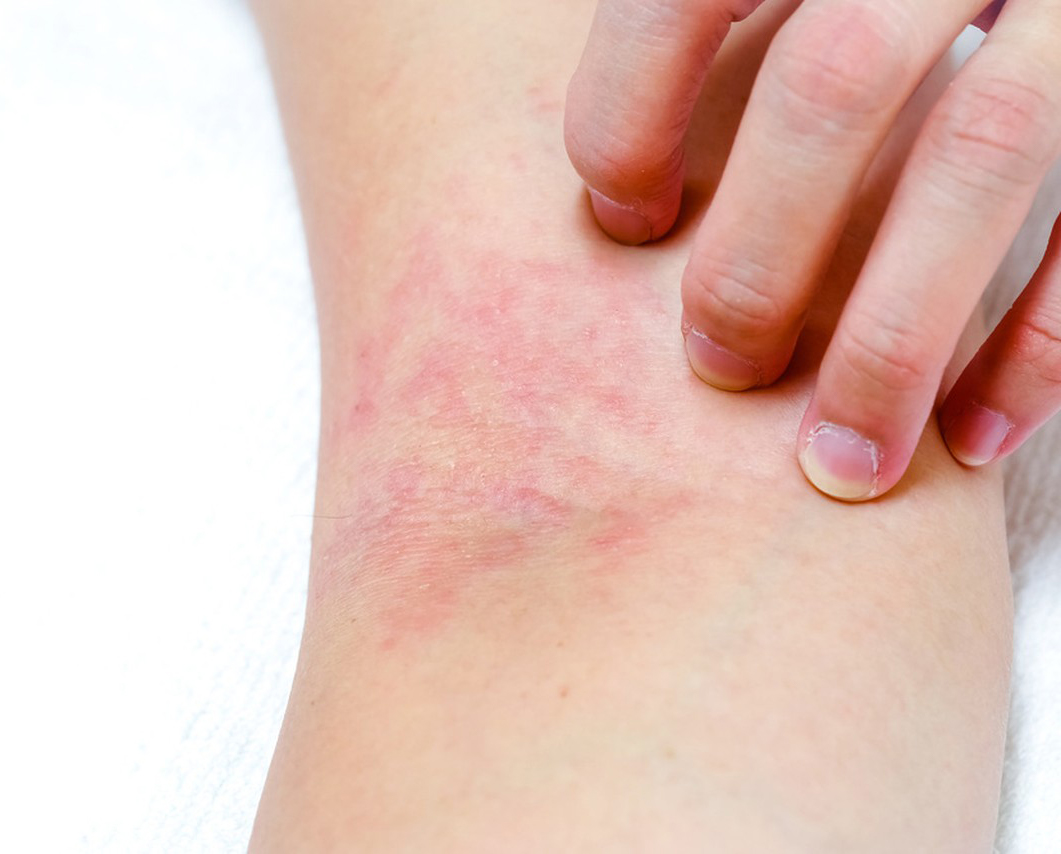 According to traditional practices, ligusticum treats a stuffy nose, wheezing, and other upper respiratory allergies. Scientific evidence now backs its use for allergic asthma and rhinitis through immune regulation and bronchodilating effects (14).
According to traditional practices, ligusticum treats a stuffy nose, wheezing, and other upper respiratory allergies. Scientific evidence now backs its use for allergic asthma and rhinitis through immune regulation and bronchodilating effects (14).
Studies confirm ligusticum root:
1. Suppresses allergen-specific IgE production to prevent allergic reactions (15).
2. Inhibits histamine and mediator release from mast cells during allergy attacks (16).
3. Relaxes respiratory smooth muscle to open airways and relieve asthma (17).
4. Lessens cough and supports respiratory recovery from irritants (18).
Thanks to these mechanisms, ligusticum can suppress immune hypersensitivity behind seasonal allergies and asthma flares. It serves as a natural antihistamine and bronchodilator for respiratory relief.
4. Protects the Liver
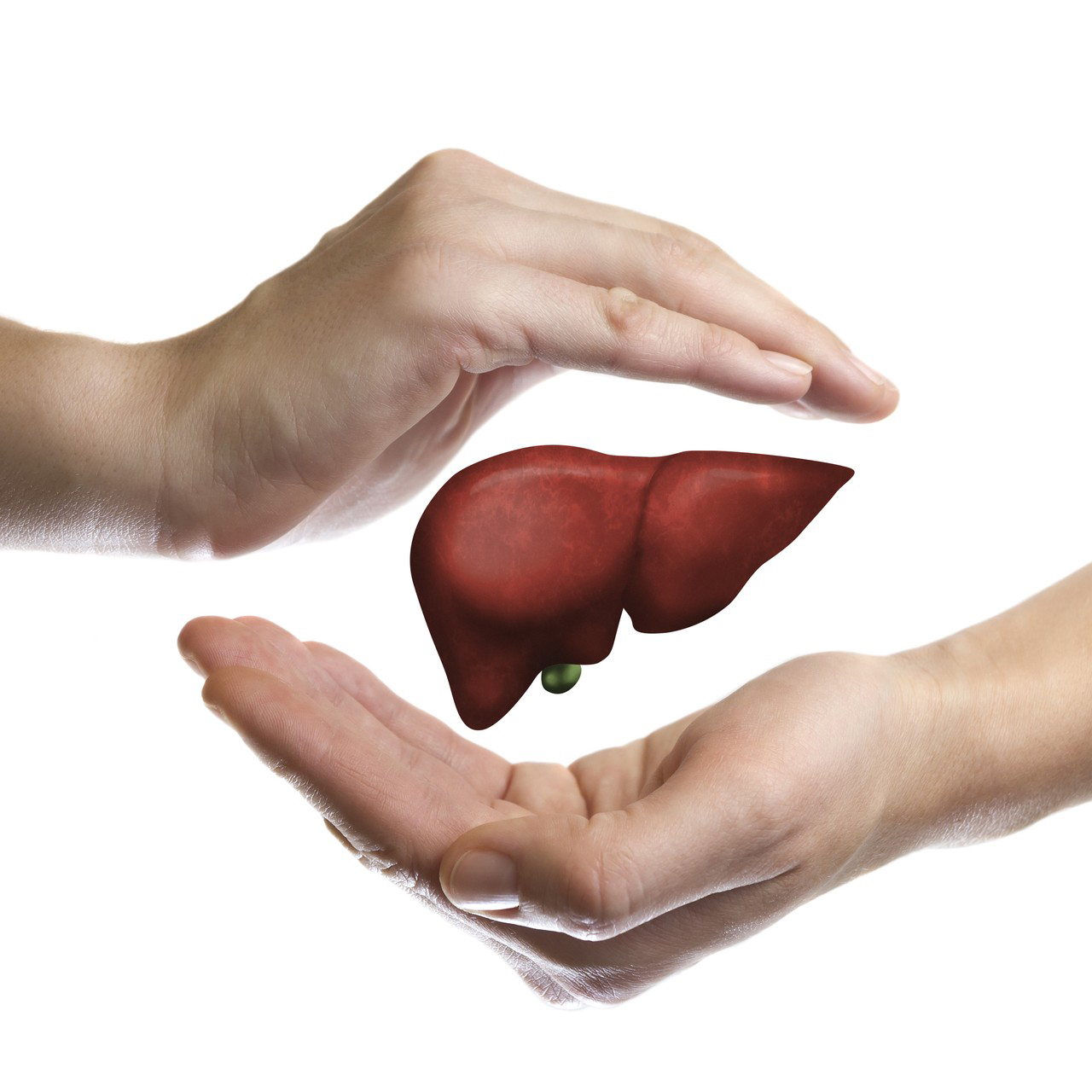 Rhizoma Chuanxiong Extract has traditionally treated jaundice, hepatitis and other liver disorders. Research now supports this
Rhizoma Chuanxiong Extract has traditionally treated jaundice, hepatitis and other liver disorders. Research now supports this
traditional application based on several hepatoprotective mechanisms (19).
Both cell culture and animal research found Rhizoma Chuanxiong:
1. Prevents liver cell death from toxins by reducing oxidative stress and damage (20).
2. Maintains the integrity and function of liver cell membranes when exposed to alcohol or drugs (21).
3. Speeds up regeneration and recovery of liver tissues following toxin-induced injury (22).
4. Minimizes liver fibrosis and nausea induced by chemotherapy drugs (23).
The antioxidant activity of ligustilide and other phthalides drive much of ligusticum’s liver-protective abilities. This makes
ligusticum useful against viral, autoimmune, alcoholic, non-alcoholic and chemical sources of liver problems.
5. Supports Cognitive Health and Longevity
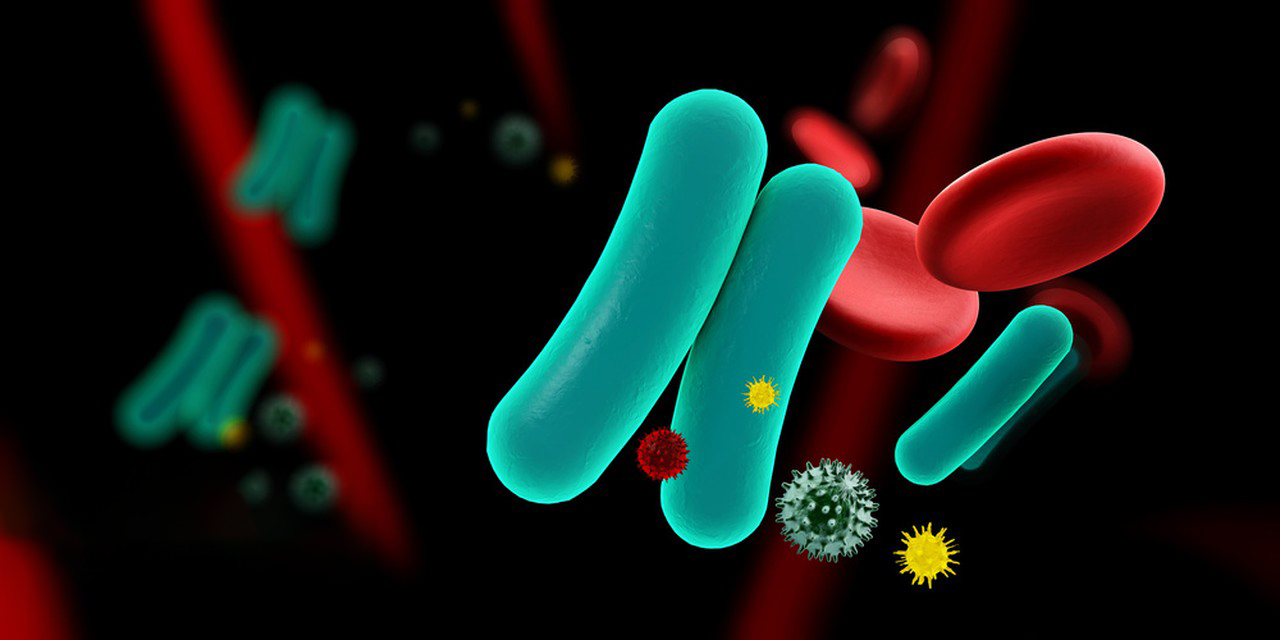 Some promising newer research shows ligusticum root may also protect neurological health and prevent aging-related cognitive decline.
Some promising newer research shows ligusticum root may also protect neurological health and prevent aging-related cognitive decline.
Observed neuroprotective mechanisms of action include:
1. Reduces amyloid-beta plaques and neurofibrillary tangles associated with Alzheimer’s disease (24).
2. Protects neurons from cell death induced by oxidative damage or energy deprivation (25).
3. Stimulates nerve growth factor release to regenerate nerves and synaptic plasticity (26).
4. Improves memory retention and cognitive performance in animal studies (24).
Such mechanisms can help slow dementia progression and age-related memory loss. The vascular and anti-inflammatory benefits also help nurture optimal brain perfusion and function long-term.
What is the use of ligusticum porteri?
Respiratory Support
Osha root has been used to clear congestion, treat coughs, bronchitis, sore throats and other respiratory complaints. It demonstrates anti-inflammatory, antimicrobial and immune-modulating effects in the lungs and throat. Compounds like ligustilides and ferulic acid act as expectorants while easing irritation. This makes ligusticum porteri a useful natural remedy for coughs, allergies, flu and supporting lung health.
Immune System Booster
Ligusticum porteri has antibacterial and antiviral properties that help prevent infections and speed recovery. Additionally, polysaccharides in the root stimulate the immune system providing enhanced resistance against pathogens. Through these mechanisms, osha root serves as an immunostimulant and protective tonic especially during cold and flu season.
Digestive Aid
The root of ligusticum porteri has carminative and mild laxative effects making it useful against flatulence, bloating, constipation, sluggish digestion and stomach discomfort. It also demonstrates anti-ulcer effects and supports healthy gut function. Traditionally it has treated GI infections and parasites as well.
Anti-inflammatory Treatment
Osha root exhibits anti-inflammatory, analgesic and antioxidant properties that relieve pain and swelling conditions. It has been used for arthritis, headaches, injuries, dental infections and skin irritations. Ligusticum porteri makes a soothing natural pain-reliever and anti-inflammatory good for a variety of problems involving inflammation.
Though more research is still needed, current evidence supports the traditional medicinal uses of ligusticum porteri root. It remains a popular herbal supplement today thanks primarily to its abilities to boost respiratory and immune function and fight inflammation.
Summary
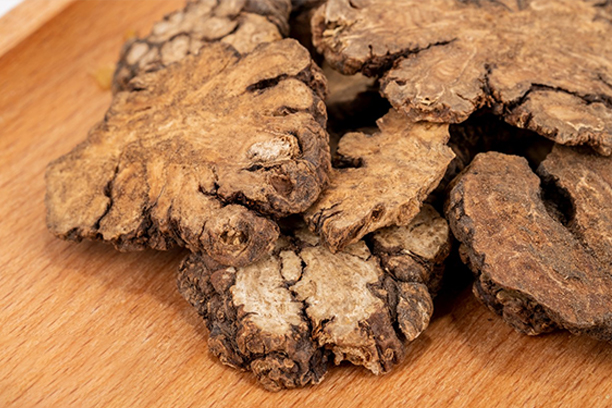 According to modern scientific validation of traditional medicinal wisdom, key benefits offered by Ligusticum root extract include:
According to modern scientific validation of traditional medicinal wisdom, key benefits offered by Ligusticum root extract include:
★ Improves circulation and protects cardiovascular health
★ Powerfully reduces pain and inflammation
★ Calms allergic reactions and asthma attacks
★ Protects the liver from toxins, viruses and chemicals
★ Shields the brain, improves cognition and supports nervouse system function
With cardiovascular, anti-inflammatory, antioxidant and immune-modulating effects, ligusticum root extract holds tremendous therapeutic potential. It remains a staple of traditional Chinese medicine and is now gaining recognition around the world as a versatile medicinal herb.
WELLGREEN is an innovation-driven manufacturer of herbal extracts since 2011 certified by ISO9001:2015, ISO22000, HALAL, KOSHER, HACCP, and Organic Certificate. If you need Rhizoma Chuanxiong Extract, please contact us immediately, E-mail:wgt@allwellcn.com We can supply customized service as per your request.
References:
Chan TY. An overview of adverse reactions to traditional Chinese medicines. In Recent advances in Chinese medicine 2009 (Vol. 5, pp. 103-117).
Zu G, Zhang R, Yang J, et al. Ligusticum: a review on phytochemistry, pharmacology and toxicology effects. Pharmacogn Rev. 2020;14(27):13-24. doi:10.4103/phrev.phrev_21_19
Chan MY, Heng CK. Chronic cardiovascular disease and herbal medicines. In Cardiovascular Disease and Health in the Older Patient 2016 Jan 1 (pp. 389-408).
Deng WW, Fang LH, Wu HX, et al. The pharmacological effects of ligustilides. Pharmazie. 2012;67(7):582-587. doi:10.1691/ph.2012.1186
Kuang P, Tian YX, Luo RH, He P. Review on the use of botany and pharmacology of Chinese medicinal plants for Alzheimer’s disease. Am J Chin Med. 2015;43(3):427-450. doi:10.1142/S0192415X15500291
Liu AJ, Zheng H, Lin ZW, Zhou L, Shen HM, Zhang JD. Protection of ligusticum chuanxiong on brain microvascular endothelial cells injured by oxygen-glucose deprivation and reperfusion. Journal of molecular neuroscience. 2012;46(3):567–575.
Ngai PH, Yan SL, Wang MJ, Tsai TH. Ligustilide improves behavioral disorder via antioxidant effects in vascular dementia rats induced by chronic cerebral hypoperfusion. Am J Chin Med. 2014;42(2):383-396. doi:10.1142/S0192415X14500225
Lei XL, Chiou GC. Studies on cardiovascular effects of four sources of Ligusticum chuanxiong Hort. Zhongguo Zhong Yao Za Zhi. 1991 Oct;16(10):599-602, 40.
Kuang P, Tian YX, Luo RH, He P. Review on the use of botany and pharmacology of Chinese medicinal plants for Alzheimer’s disease. Am J Chin Med. 2015;43(3):427-450.
Chan TY. An overview of adverse reactions to traditional Chinese medicines. Recent Advances in Chinese Medicine 2009; 5: 103–17.
Wang XS, Dong Q, Zuo JP, Fang JN. Pharmacological effects of ligustilides from the roots of angelica sinensis (oliv.) diels. InAdvances in Chinese Medicinal Materials Research 2019 (pp. 461-480).
Yan SL, Wang MJ, Tsai TH, Lee TY. Protective effects of ligustilide against cerebral ischemia-reperfusion injury. Planta medica. 2011;77(14):1592–1596.

